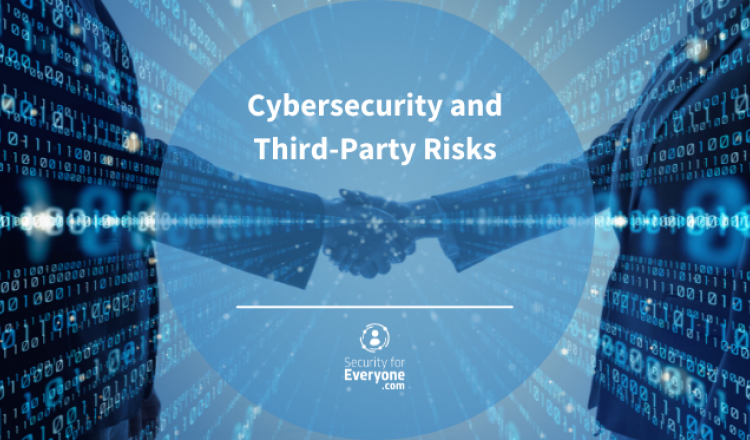Cybersecurity and Third-Party Risks
2022-01-03 09:21

Cybersecurity and Third-Party Risks-Security For Everyone
When it comes to cybersecurity, third-party risks are one of the most commonly overlooked threats. These are risks posed by parties that are not directly affiliated with the company, such as clients, suppliers, or partners. Because these entities are not under the same umbrella as the company, they may not be subject to the same security measures and protocols. This leaves the company vulnerable to potential attacks or data breaches.
Third-party risks can be relevant in a number of different ways. For example, a hacker may attempt to gain access to company data by targeting a supplier or partner. Or, a malicious employee of a third party could deliberately steal or leak sensitive information. In either case, the company would be left dealing with the aftermath of a cybersecurity breach.
In cybersecurity, there are a number of different third-party risks that cybersecurity experts should be aware of. For example, there is the risk from third party vendors or suppliers that supply services to the company over the Internet. There is also the risk from business partners that exchange data with a company, and any risks posed by affiliates - websites owned by a parent corporation. The threat from rogue employees who work for a third party provider should also not be overlooked, as they can pose significant cybersecurity threats by stealing or leaking data or taking part in other cybercrimes.
One way cybersecurity experts combat this sort of security risk is through agreements with their clients and business partners. This means that these parties must adhere to specific cybersecurity standards in order to do business with an organization. By doing so, cybersecurity experts can reduce cybersecurity vulnerabilities and prevent third-party cybersecurity risks.
However, cybersecurity experts must also look to their own security protocols and procedures in order to minimize third-party cybersecurity risk. These can include employee training programs, antivirus and malware software, and multi-layered cybersecurity systems. They should also aim to create secure systems that protect sensitive data from unauthorized access or leaks. This means creating effective firewalls and encryption methods for important files such as client records or customers' personal information like social security numbers and credit card details.
Cybersecurity is a serious issue that cannot be taken lightly – not only does it affect public safety and national security, but it also has major financial impacts as well as the possibility of reputation loss. In addition to cybersecurity threats posed by hackers, many companies face problems related to cybersecurity risks brought about by third-parties.
As cybersecurity threats continue to evolve, experts are discovering new cybersecurity risks posed by third parties almost daily. While there are multiple means of managing these risks, the most effective way to prevent cybersecurity breaches caused by third parties is through establishing agreements with business partners and clients about cybersecurity standards and security protocols. It is also essential for organizations to take steps like creating secure systems and cybersecurity training for employees to ensure that cybersecurity risks are minimized to the highest extent possible.
When third party cybersecurity risk becomes an issue, it is important to have a clear plan of action in place that outlines how to handle cybersecurity breaches or other cybersecurity problems caused by external sources. By following through with this plan and establishing cybersecurity protocols, cybersecurity experts can help companies manage third-party cybersecurity risks effectively and minimize negative consequences. Following cautions might take place to prevent or minimize the impacts of the breach:
- Third-party cybersecurity risk management plan
- Firewall (to block unauthorized access)
- Encryption (so data cannot be read if it is leaked)
- Training (for example cybersecurity training for staff who exchange data with third parties)
- Employee agreement (to protect against rogue employees, usually the last resort because it sets a bad precedence for other employees and can be difficult to manage; however cybersecurity experts may still find this useful to prevent technical cybersecurity risks)
Various cybersecurity experts talk about cybersecurity risks to third parties. Also cybersecurity experts can talk about cybersecurity training for staff who handle data from third-parties, what cybersecurity standards should businesses use when they partner with third parties and how business partners can protect themselves from cybersecurity breaches caused by third-parties. If necessary, cybersecurity experts can also talk about the different types of agreements that need to be in place between a company and a third-party if that's relevant for this topic.









